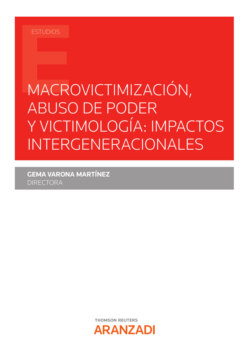Читать книгу Macrovictimización, abuso de poder y victimología: impactos intergeneracionales - Gema Varona Martínez - Страница 14
На сайте Литреса книга снята с продажи.
1.3. Reparation and compensation of victims of terrorism
ОглавлениеRegarding the compensation of victims of terrorism, article 13, of the 2005 Convention on the Prevention of Terrorism54, calls on Member States to ensure financial assistance and compensation for victims of terrorism and their close family members. According to the Guidelines on the protection of victims of terrorist acts (adopted in 200555 and revised in 201756), States should provide fair, appropriate and prompt compensation regardless of the nationality or residency of the victim, on the basis of the principle of subsidiarity laid down in article 2 of the 1983 European Convention on Compensation to Victims of Violent Crimes57. This principle of subsidiarity implies that the obligation of compensation by the State becomes effective only if compensation cannot be provided by those responsible for the terrorist act (perpetrators, organizers, supporters, etc.) or by any other sources derived from the confiscation of assets belonging to terrorist organizations.
It should also be noted that the Guidelines encourage States to consider other forms of reparation than the payment of compensation58. In this respect, several instruments59 of the Council emphasize that material compensation is often not sufficient and must be accompanied by other appropriate reparation measures to ensure full recovery and rehabilitation of victims of terrorism (alternative dispute resolution, social reintegration measures, free medical care, etc.).
The Council has also underlined certain specificities that might impact the compensation of victims of terrorism, such as the lack of consensus on a definition of terrorism. In this regard, the Group of Specialists on remedies for crime victims (CJ-S-VICT) calls on States to harmonize their terminology in order to avoid discrepancies between the various sources of funds available (insurance sector, public organizations and funds, victim support associations, etc.)60.
Concerning the transnational nature of terrorist victimization, the Council considers that States should provide compensation to all victims of a terrorist act committed on their territory, regardless of the nationality or residency of the victim61. The collective/massive nature of terrorist victimization is also discussed by several texts that point out the opportunity of resorting to collective or symbolic forms of reparation in order to repair the damage caused to the community targeted by the terrorist act (e.g., construction of a memorial, of a hospital or a school)62.
Besides, considering that insurance companies tend to exclude the terrorist risk from their insurance policies because of the large-scale damage it can cause, the Council of Europe calls on states to induce insurance companies to guarantee full coverage of terrorist risks63. Finally, the Council has raised the question of the creation of specific compensation funds for victims of terrorism, both at national64 and European65 levels. At European level, the Council specifies that such fund could also support awareness campaigns, first responders trainings, victims’ associations or technical assistance measures66.
